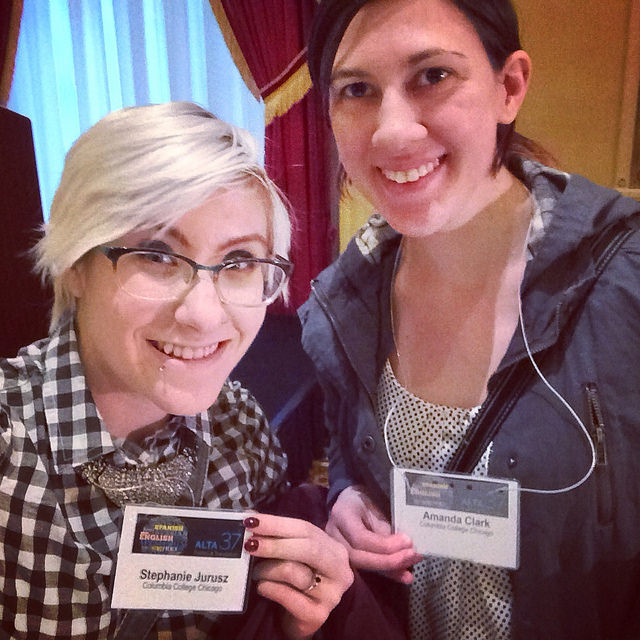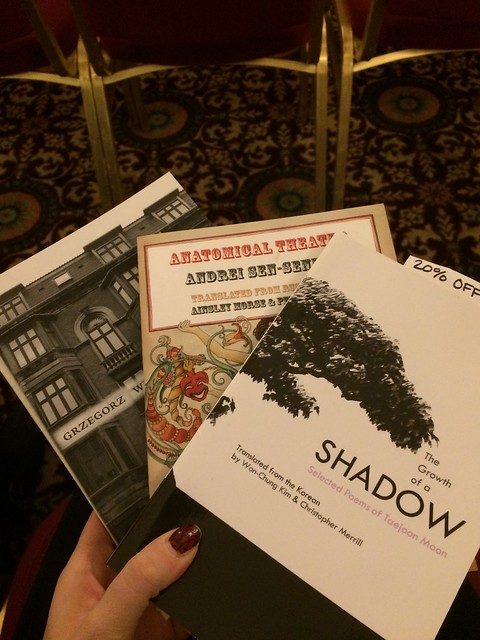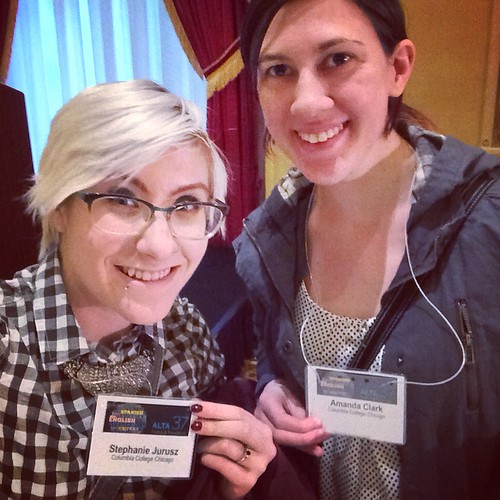
ALTA Conference and Literary Translation

Literature in Translation — Great finds at the ALTA bookfair!
This semester, I am taking one of the most exciting, unique, and challenging courses in my graduate program so far: Literary Translation. Taught by Aviya Kushner, we have studied theories of literary translation as well as some of the best works of translated literature from around the world. For the past ten weeks, we have read literature from a variety of languages and translated short poems or prose pieces from their original languages into English with a trot (a word-for-word list of English meanings for each word in the original source text).
Translation is exciting, creative, and challenging, especially if you do not speak or read the original language, but I also find translation incredibly stimulating and rewarding. As Aviya and other translators have stressed, translation is an act of service; there is a great responsibility the translator owes to the original text and author when bringing a text to life in English beyond the literal word-for-word transmission. The act of conveying the same meaning or spirit of a work is complicated by the many subtleties of each language and culture from where the source material derives, which requires the translator to do research and be conscious of the social, cultural, and historical context of the original source material.

ALTA 2014 at the Milwaukee Hilton
Throughout the course, Aviya has encouraged us to get further involved in the translation community and reach out to other translators or native speakers of the languages we are interested in translating. Luckily for my project, which focuses on the work of Polish poet, Krzysztof Kamil Baczyński, Chicago is rich in Polish language speakers and scholars! Even luckier for our class is the opportunity to attend a literary translation conference right as we are digging into the heart of our projects.
The American Literary Translators Association (ALTA) hosts an annual conference in which translators from a multitude of languages come together to discuss theories, practical realities, business, and political/cultural considerations of translating literature into English. This year, ALTA held their annual conference in Milwaukee, WI, a mere two-hour drive from Chicago, so my classmate Amanda Clark and I packed up and drove north this past week to immerse ourselves in translation.

Me and Mandy at ALTA 2014!
Although we were only able to attend one day of the three day conference, it was a trip we were both glad to have made. This conference allowed us the opportunity to meet and network with other translators and publishers of literary translations as well as the chance to speak with seasoned translators and ask for advice or suggestions on how to create our own best translation practices. Everyone we spoke to was incredibly kind and welcoming, despite both of us being in the beginning stages of translation and developing our own styles and practices.
We also had the chance to attend two panels on the politics of translation and the ways cultural, social, and political realities manifest in international writing and considerations for how the American translator can best honor these realities in English and make them clear to an English-speaking reader.
I left the conference excited, invigorated, and revved up to continue my translation work, eagerly anticipating next year’s conference.
While translation isn’t for everyone (it truly is a labor of love), I highly recommend incoming grad students to consider taking this course if it is offered (it doesn’t come around every semester!) because in addition to exposure to new writers and literature you may have never read before, translating changes the way you look at language. This course has had such a positive impact on my own nonfiction (non-translated) writing, and perhaps most importantly expanded my understanding of literature as an international language, forcing me to ask not only where does my work fit into the literature of my peers or my country, but the world.
